Register here for our first Tune-In event.
This first session will focus on audience experiences from the perspective of professionals in the early, classical, and world music sectors. The goal is to reflect on current audience outreach strategies, identifying challenges, successes, and potential ways to engage diverse audiences more effectively.
The session will be highly interactive, with opportunities for participants to share their insights, engage in discussions, and collaborate on solutions in breakout rooms.
Moderator
• Davide Grosso, Director of Programmes & Partnerships at International Music Council
Speakers
• Jurn Buisman, Director of Museum Geelvinck; Initiator of Tune-In
• Dunya Verwey, Programme curator of Museum Geelvinck
• Jorge Losana, Board member of REMA, founder of the vocal ensemble Cantoría, director of the ECOS Festival de Sierra Espuña
• Karin Cuéllar Rendón, President of Early Music America; Artistic director of ClassiqueInclusif
Programme
• 14:30 – 14:40 | Welcome & Session Overview
• 14:40 – 14:55 | Introduction by Jurn Buisman & Co-presenter Dunya Verwey
• 14:55 – 15:10 | Roundtable: Participant Introduction
• 15:10 – 15:25 | Jorge Losana: Breaking the Fourth Wall in Early Music
• 15:25 – 15:40 | Karin Cuéllar Rendón: Reaching Audiences Fostering Inclusion, Diversity and Belonging: Early Music America and ClassiqueInclusif
• 15:40 – 15:45 | Introduction to Breakout Room Sessions
• 15:45 – 16:00 | Breakout Room Discussions
• 16:00 – 16:25 | Group Presentations & Open Discussion
• 16:25 – 16:30 | Wrap-Up
Presentations
• Davide Grosso – Director of Programmes & Partnerships at International Music Council (IMC)
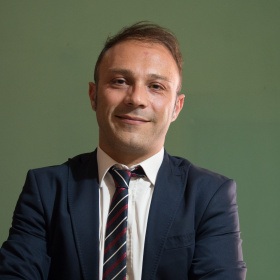
Five music rights activist with an academic background in ethnomusicology, he has carried out extensive field research in Indonesia about music and society and worked in journalism and media. He joined the International Music Council in 2013 where he is in charge of project management and communication. Among other assignments, he is the Secretary of the International Rostrum of Composers and curates the edition of the Music World News. From 2020 to 2022 he chaired the NGO-UNESCO Liaison Committee, representing a network of more than 400 NGOs in official partnership with UNESCO. Outside the office Davide composes electronic music and writes about music and politics for various magazines and blogs.
• Jurn Buisman – Director of Museum Geelvinck; Initiator of Tune-In
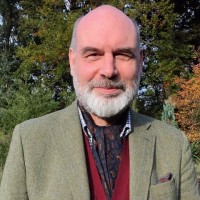
I have been professionally active in the cultural heritage sector since the late eighties. Having been raised in an artistic and industrialist home, after studying economics and information sciences, I established Museum Geelvinck in a canal mansion in Amsterdam in 1991. From an applied art-orientated museum, I evolved it – together with my wife, Dunya Verwey – into a space for stories related to the history of its past inhabitants: from historic gardens to slavery, from porcelains to slow-food. We also organised exhibitions abroad, at the UN, in Russia, Taiwan and more. Since 2004, we started to focus on early keyboard instruments and today look after the largest Dutch collection of early pianos. I continue to oversee the creative and research side of the Museum as well as the management of its collection.
I was a member of the World Economic Forum and have developed heritage conservation and cultural dialogue efforts for the UN. Today, I am secretary general for ICOMOS Netherlands, vice-president Europe ISCCL, active for ISC Water & Heritage and WGClimate Change, as well as CIMCIM, ICLCM, Dem Hist, Europa Nostra, REMA, InterpretEurope, Slow Food and more.
• Dunya Verwey – Programme Curator at Museum Geelvinck
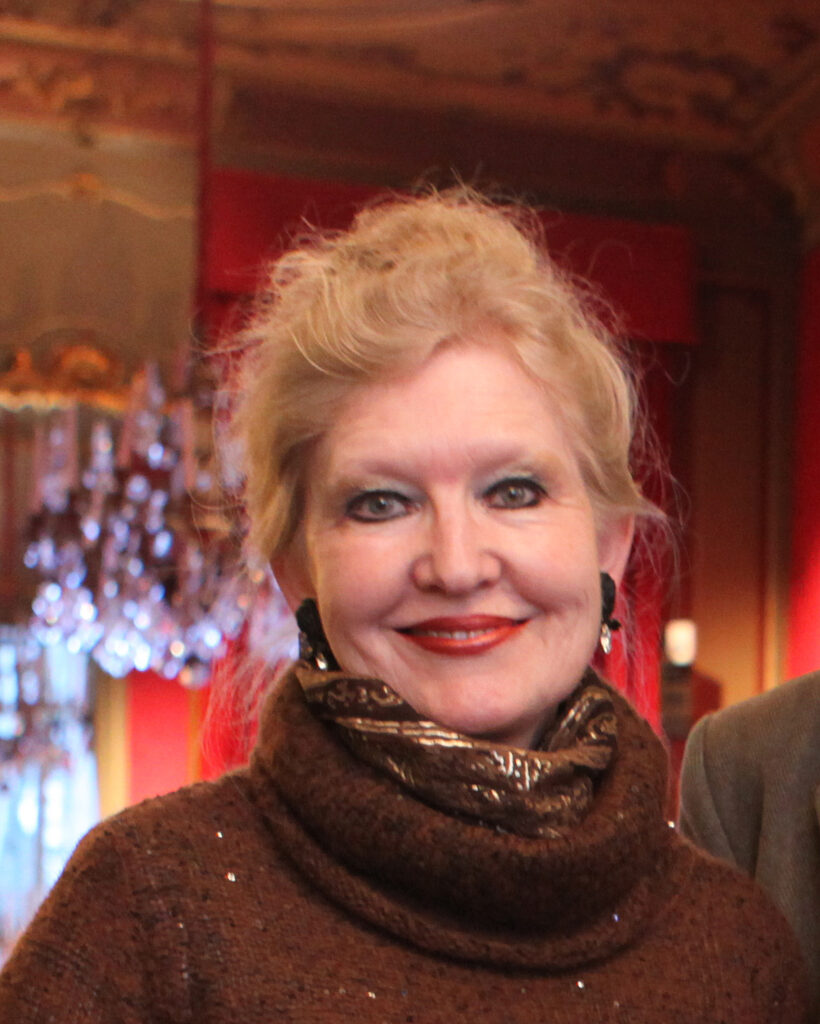
Dunya Verwey is a cultural anthropologist, curator, and activist with a distinguished career in social justice, intercultural dialogue, and living musical heritage. Since 1997, she has been deeply involved with program development for Museum Geelvinck (Geelvinck Hinlopen House), its festival and other related activities. She currently serves as Vice-Chair of the foundation’s Board, concert series, and international cultural projects. Recent projects, which she co-created, where ‘Beethoven is Black’ (2021) and ‘Bigi Kaaiman – Songs and Tales from Slavery Times’ (2024). Already over twenty years, she is the program curator of the Geelvinck Salon concert series.
Her career spans roles in government, media, and civil society, including policy development at the Dutch Ministry of Interior on minority integration and human rights, as well as producing documentaries on social issues for IKON TV. As a longtime advocate for gender equality, she was one of the four co-initiators of the feminist movement Dolle Mina and continues to engage in feminist activism. Also she stood at the cradle of Cinemien (feminist film effort), of the UN-related NGO CDAC (Comprehensive Dialogue among Civilizations), and of the Dutch Dragon Boat Association.
Beyond her curatorial and advocacy work, she has been actively involved in numerous organizations, including the International Dialogues Foundation, the Middle Eastern Women’s Network, and the Maecenas World Patrimony Foundation (UN). Her expertise extends to migration studies, multicultural societies, and ethno-cinematography, grounded in her academic background from the University of Amsterdam. Today, she serves also as President of MoWIC (Foundation for the Monuments of the Dutch West-India Company), and she is Board Member of the Arnold Bake Society (ethnomusicology).
• Jorge Losana – Board member of REMA, Founder of vocal Ensemble Cantoría, Director of ECOS Festival de Sierra Espuña
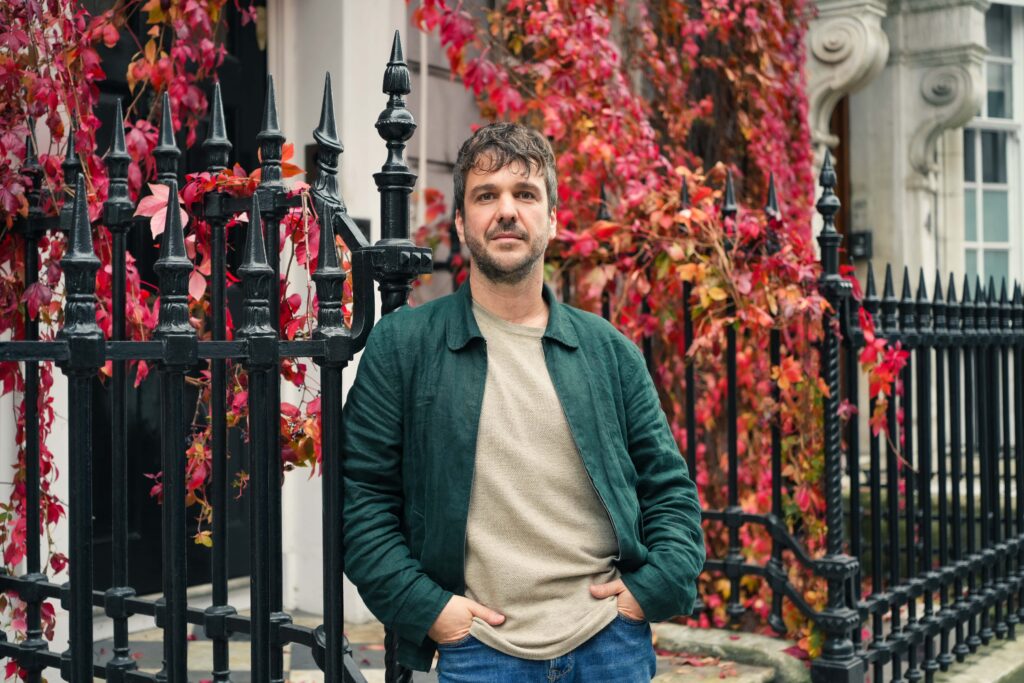
Jorge Losana is a singer, conductor, cultural promoter, and entrepreneur. Born in Murcia, he moved to Barcelona in 2016 and founded the vocal ensemble Cantoría, specializing in Iberian Renaissance music. With Cantoría, he has performed concerts across numerous European and American countries and released the album Ensaladas, which received awards such as the “Diapason Découverte” and the “Preis der Schallplattenkritik”. Jorge Losana is also the director of the ECOS Festival de Sierra Espuña, which brings together the best international young talent in early music every summer in the Region of Murcia. Additionally, he leads the Baroque Orchestra and the Historical Music Workshop at the University of Murcia.
He is frequently invited as a speaker, jury member, and professor at international forums such as Early Music America, the Brighton Live Young Artists Scheme, the International Young Artist’s Presentation in Antwerp, the Early Music Week of Estella, and the S-EEEmerging project. He also actively participates in national and international discussions on music, youth, and sustainable development goals. The ECOS Festival won the “R.E.M.A. Award” for Best Training Program in its 2023 edition (Cork, Ireland). Since 2025, he has been a board member of the European Early Music Network (R.E.M.A.) and regularly collaborates with media outlets such as Melómano Digital and Total Baroque Magazine.
After spending some years as a visiting student at the Hochschule für Musik und Darstellende Kunst Mannheim, he completed a Bachelor’s Degree in Choral Conducting at the Conservatory of Music of Murcia, a Degree in Music Education at the University of Murcia, and a Bachelor’s Degree in Classical and Contemporary Singing at the Escola Superior de Música de Catalunya (ESMUC) in Barcelona, where he also specialized in Historical Singing, earning a Master’s Degree in Early Music Performance. He concluded his studies with a Master’s Degree in Advanced Vocal Ensemble Studies at the Schola Cantorum Basiliensis in Basel, Switzerland. He has recorded for international labels such as Deutsche Grammophon, Carus Verlag, Ambronay Productions, and Rondeau Production and he was a student at The Festival Academy in its New York edition (2024).
The vocal ensemble Cantoría was named “The Best of Classical Music of the Year” by the cultural magazine El País (Babelia, December 2024).
• Karin Cuéllar Rendón, President of Early Music America; Artistic director of ClassiqueInclusif
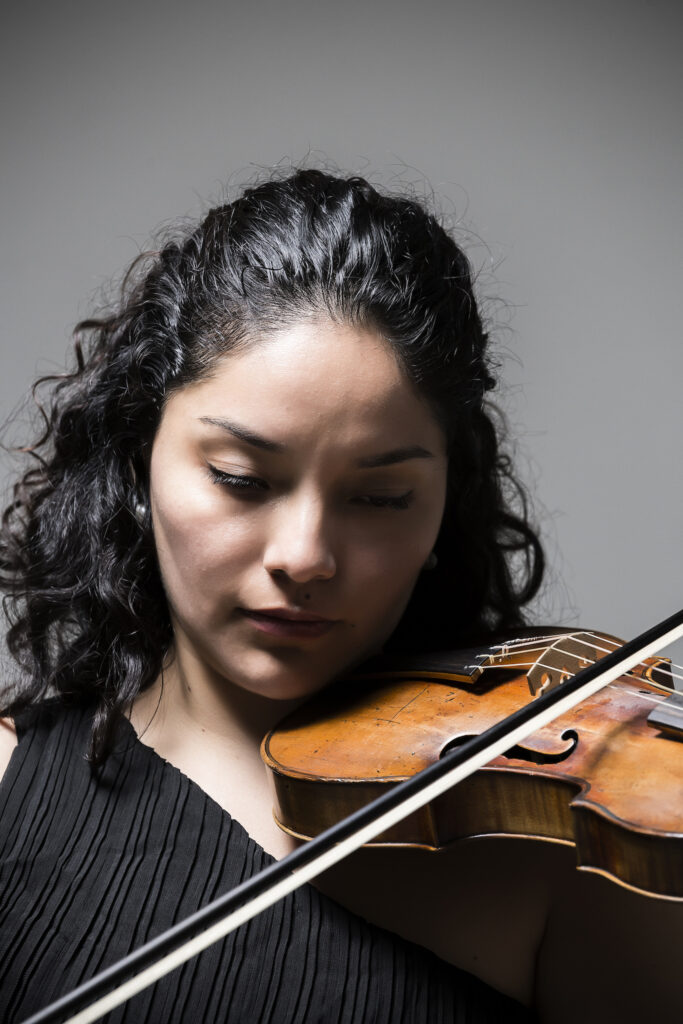
Karin A. Cuellar Rendon is a Bolivian historical violinist and scholar currently residing in Montreal, Canada. Cuellar performs regularly with Montreal-based period ensembles such as Ensemble Caprice, Arion, Les Boreades, and L’Harmonie des Saison. Past collaborations have included Orchestra of the Age of the Enlightenment, Florilegium, Oxford Bach Soloists, Ex Cathedra, American Bach Soloists, Apollo’s Fire, ARTEK, and the National Symphony Orchestra of Bolivia. Cuellar currently serves as president of the board of Early Music America, and is the artistic director of ClassiqueInclusif, an initiative of Ensemble Caprice that won the 2024 Prix OPUS Montreal Inclusion et diversité. Since 2024, Cuellar serves as assistant artistic director of the Festival Misiones de Chiquitos in Bolivia. Cuellar earned a Master of Arts degree in Historical Performance from Case Western Reserve University under the guidance of Julie Andrijeski and Ross Duffin and obtained an Advanced Diploma on baroque violin from the Royal Academy of Music in London, where she studied with Maggie Faultless, Rachel Podger, and Matthew Truscott as a beneficiary of the San Marino and Vincent Meyer scholarships. Cuellar is currently a PhD candidate in Musicology at McGill University supported by the Fond de Recherche du Québec with a research focus on performance practices in South America in the first half of the nineteenth century, using as a case study the music of Peruvian composer Pedro Ximenez Abrill Tirado (1784-1856).